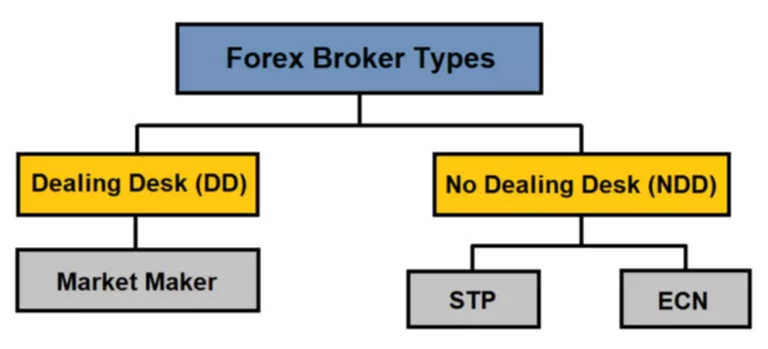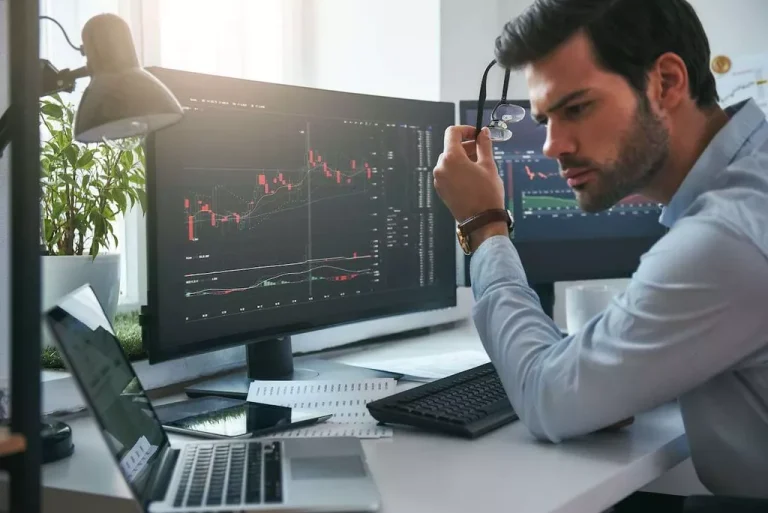Content
Therefore, spreads are the primary source of revenue for Market Maker Forex brokers. TradingBrokers.com is for informational purposes only and not intended for distribution or use by any person where it would be contrary to local law or regulation. We do not provide financial advice, offer or make solicitation of any investments. There’s usually no spread mark-up to pay, rather just a standard commission. It is quite common for some of the larger brokers to https://www.xcritical.com/ give you discounted commissions based on your trading volume. Generally speaking, the more volume that you trade, the more you can save on trading costs.
Choosing the right type forex broker model for your style
However, if the market price moves against the position, the stop price does not move, and the order is triggered when the market reaches the stop level. Once the price reaches the stop level, the stop order is converted Proof of space into a market order, and execution occurs at the next available price. This means that there is no guarantee of the exact price at which the stop order will be filled, especially in volatile markets. When you place a limit order, the order is added to the order book at the specified price. If the market price reaches your limit price, the order will be executed at that price or better.
Important Truth and Myths About Trading: You Need to Know!
ECN brokers always charge a commission on trades, whereas STP brokers can charge commissions and gain from the spreads. Generally, STP brokers have access to many liquidity providers, with each different types of forex brokers offering different bid and ask prices for a particular currency pair. They would then add a small markup and then quote the marked-up bid and ask prices to their clients.
Leverage and What Retail Traders Need to Know

The NDD forex broker generally either charges a commission or they widen the bid/offer spread in order to make a small profit on each trade executed, sometimes they do both. Profit-based challenges focus on achieving a specific profit target within a set period of time. Traders participating in this challenge must meet the profit target while adhering to various risk management rules such as maximum drawdown and daily loss limits.
- He became an expert in financial technology and began offering advice in online trading, investing, and Fintech to friends and family.
- My name is Mircea, and I am an MBA in International Business graduate, Magna Cum Laude, from American University.
- We have also pinpointed the forex brokers who go beyond what is required to meet the needs of their clients.
- One of the most important traits for success in any funded account challenge is consistency.
- In finance, a trading strategy is a fixed plan that is designed to achieve a profitable return by going long or short in markets.
- That’s easy to see when studying the types of trading accounts offered to retail traders.
The core services are rented from providers while the traders enjoy seamless services. The White label broker sells its services with its logo and full branding but the products are actually sourced from a third party. ECN brokers use advanced technology to connect forex traders directly to the forex market.

So, if you have the required capital, an ECN broker may be the best for you, but if you are a beginner trader with little capital, an STP broker is good. We do not sell or recommend any trading services ourselves, but may be compensated through third party advertisers. This compensation should not be seen as an endorsement or recommendation by us, nor shall it bias our prop firm reviews. Traders need to remain calm under pressure, especially in drawdown-based challenges or when approaching profit targets.
In contrast, other brokers target professional traders, offering advanced tools, resources, and more competitive pricing structures suited to experienced traders’ needs. For example, liquidity providers, such as Prime brokers and PoP brokers, supply market liquidity, ensuring that trades can be executed efficiently. In the A-book model, although the broker initially acts as the counterparty to the trader’s trade, they do not retain this risk internally. Instead, they externalize the risk by effectively passing the trade onto a liquidity provider (LP).
They may match orders internally among their client base to offset opposing positions, thus neutralizing their exposure. They also use sophisticated risk management systems to monitor and manage their overall exposure to market movements. These aspects directly impact the trading experience, as they dictate the tools, features, and conditions available to traders. If you understand exactly what you are doing and the risk involved, you can choose an unregulated or offshore-regulated forex broker. Generally, choose a broker that has good and efficient customer service, a good reputation or regulation, a compatible platform with your access device, low trading fees, etc. It is important to understand that CFDs are illegal for U.S. citizens and residents to trade and should be avoided.
Adapting to market conditions is crucial since different market phases may require different strategies. Yes, seasoned traders can opt for cent accounts to experiment with new strategies or trade in markets where they want to control risk closely. Nevertheless, cent accounts typically meet the requirements of beginner traders. One crucial aspect to consider is the trading conditions provided by the broker.

In fact, many brokers offer both the MT4 and MT5 leaving the broker to make his choice of platform. Some traders are stuck with the MT4 because the indicators, EAs, and tools that were designed for the MT4 cannot work on the MT5. All information on The Forex Geek website is for educational purposes only and is not intended to provide financial advice.
This is the same reason why most of the brokers offer various account types, such as Cent, Managed or Raw spread accounts. Forex brokers can also be categorized based on the types of trading accounts. Unregulated Forex brokers are entities that offer foreign exchange trading services without being overseen by any official regulatory body. The most popular platform classifications are MT4 brokers, MT5 brokers, cTrader brokers, and brokers who offer proprietary platforms. STP brokers route orders to LPs, ECN brokers connect traders to the market while DMA brokers aggregate orders and move them to their partner LPs.
For instance, if a client buys a currency pair, the broker will sell it to them. This model allows brokers to profit from spreads – the difference between the buying (bid) and selling (ask) prices. Dealing Desk brokers, also known as Market Makers, play a pivotal role in the Forex brokerage business by providing liquidity to their clients.
Hybrid brokers possess characteristics from both the Dealing Desk and No Dealing Desk models. They can function as a Market Maker for less substantial accounts or specific types of orders, while simultaneously providing STP or ECN execution for larger accounts or various forms of trades. This approach enables them to efficiently handle risk while also granting their clients adaptable options. Most of the forex trading brokers are organized as either an essential two types of forex brokers such as a Dealing Desk (DD) or a Non-Dealing Desk (NDD).